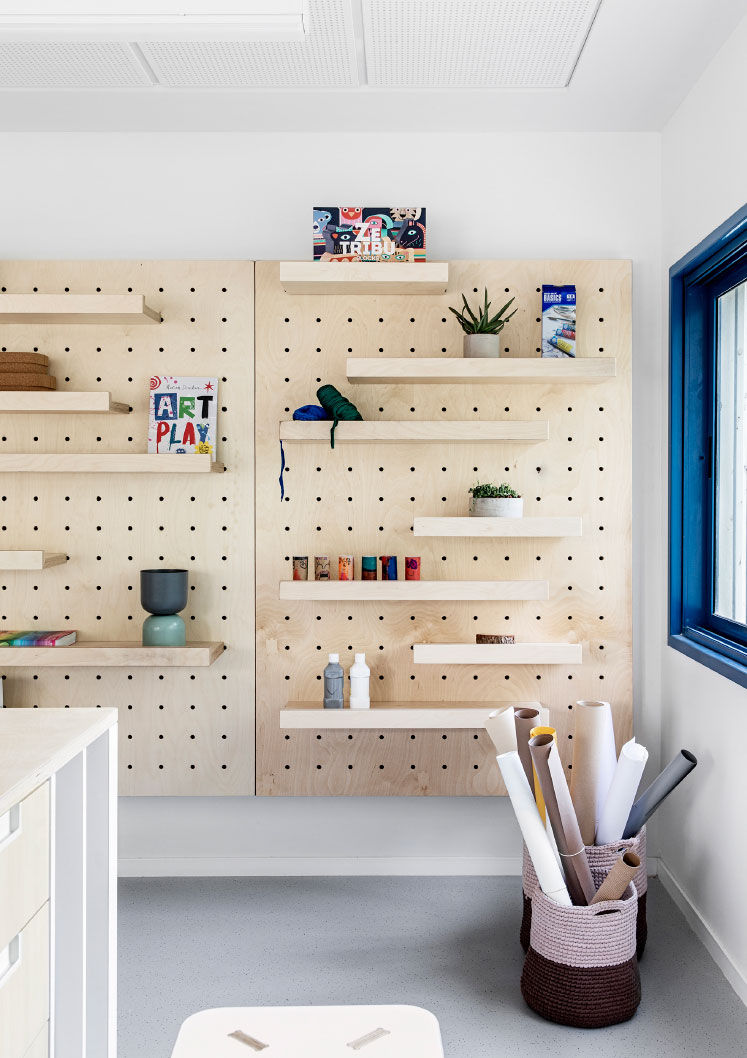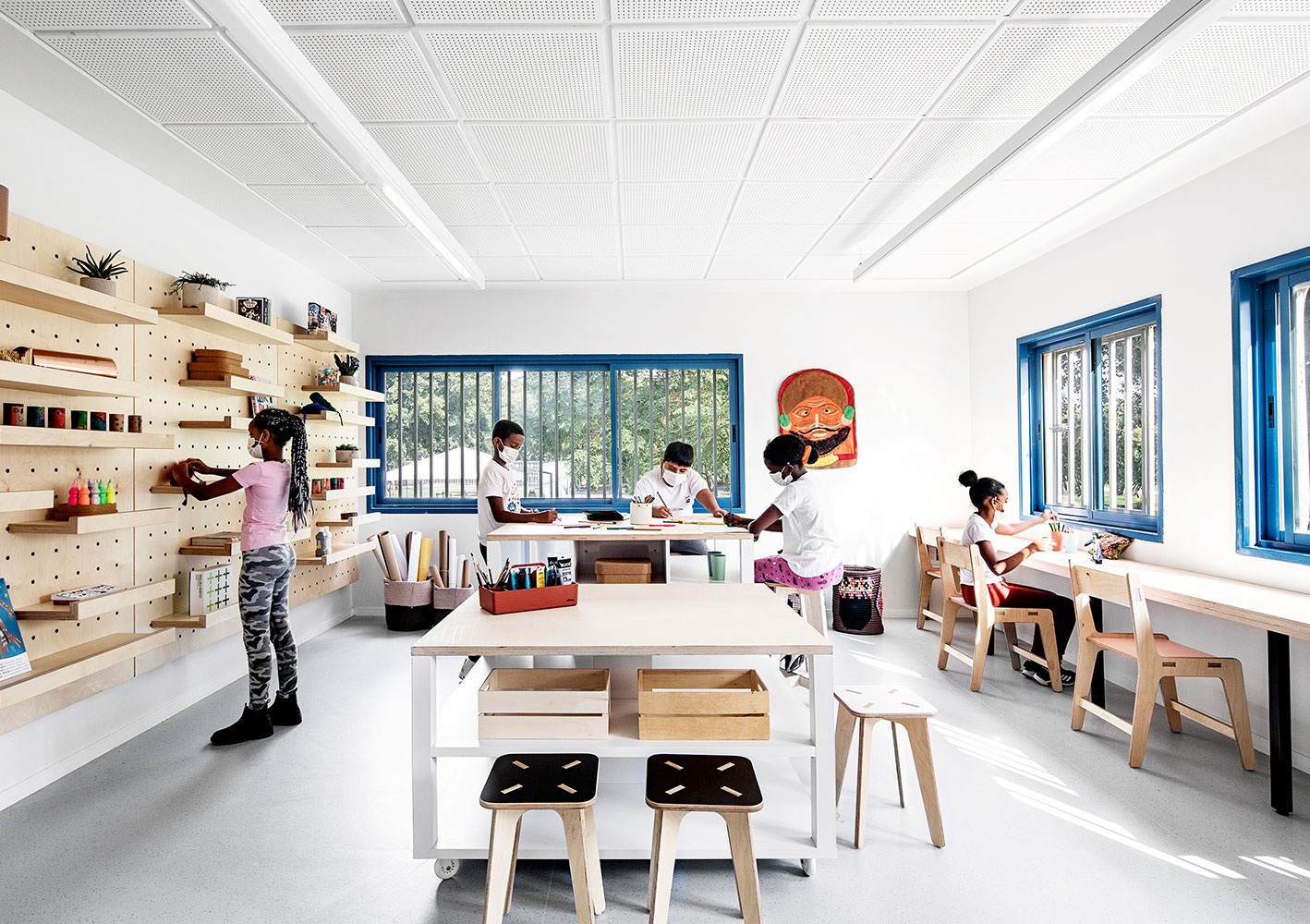A safe and pleasant space that encourages creativity, play, growth and development
A safe and pleasant space that encourages creativity, play, growth and development
Meitar // Yarden Center for Emotional Support
The Meitar project, also called Yarden Center for Emotional Support, is a Tel Aviv Municipality pilot and a project unique to HaYarden School, attended by foreign and stateless children. The initiative to establish the center was born from the need to provide support to children who come from difficult and complex backgrounds and are in emotional distress, which is also reflected in behavior problems and social difficulties. All this without relying on the parents, since most of them do not have the financial possibility, the knowledge or emotional availability to provide them with care outside the walls of the school.
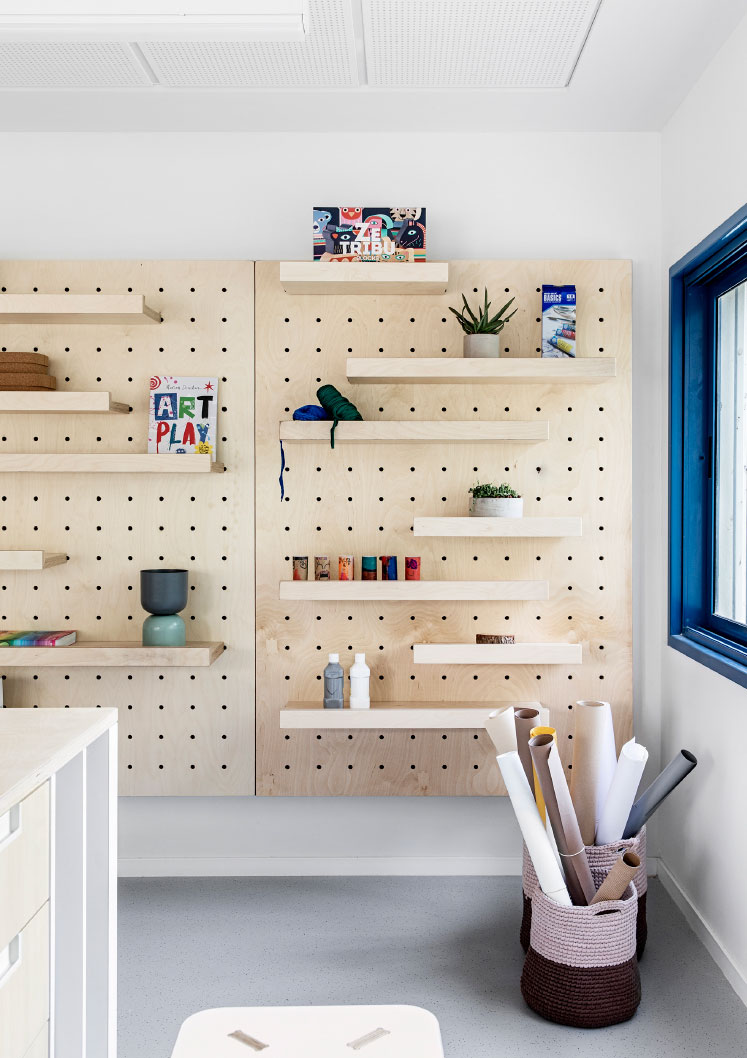
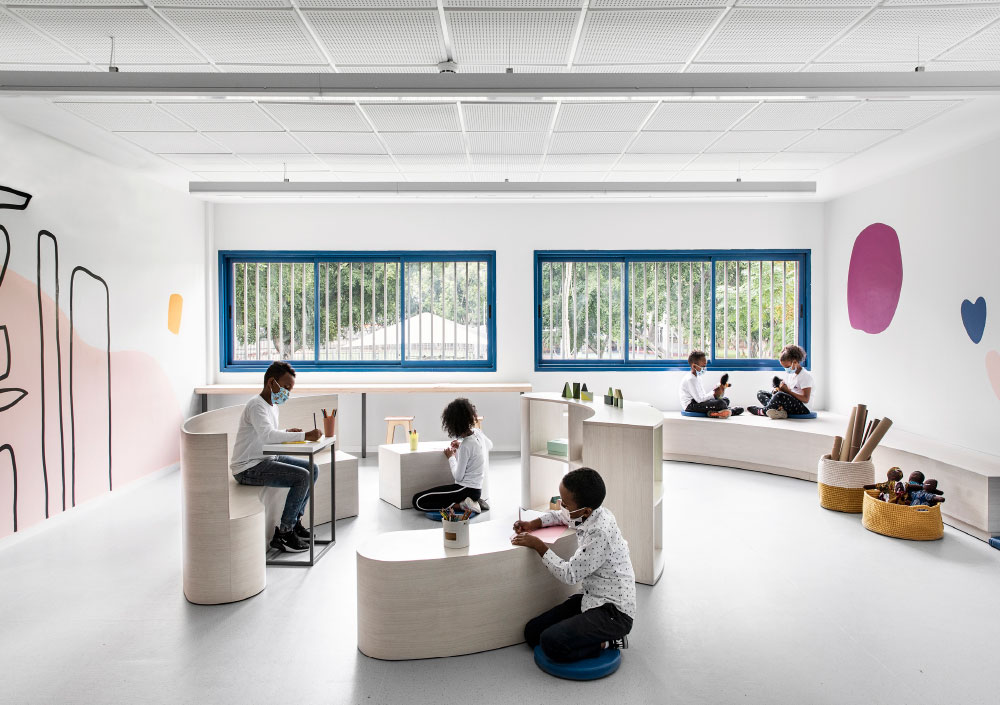
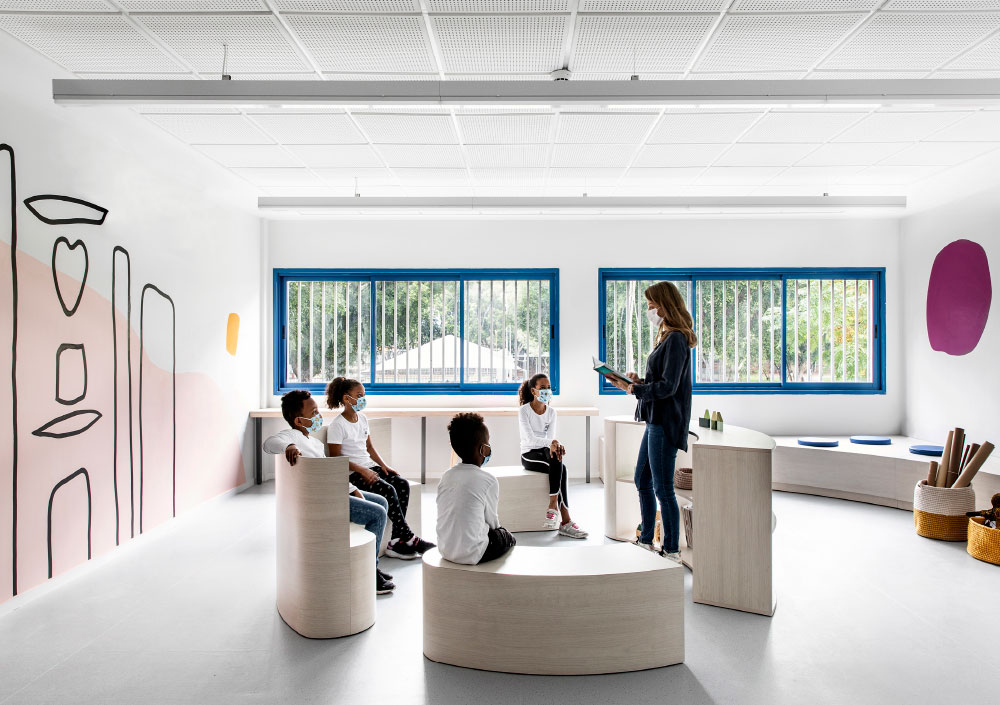
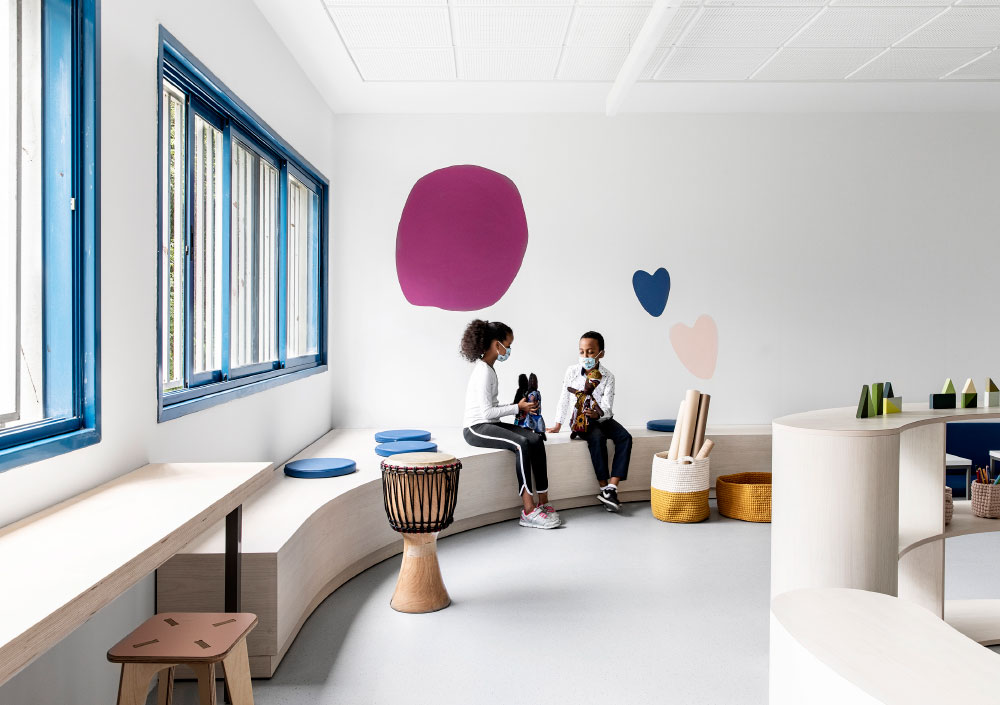
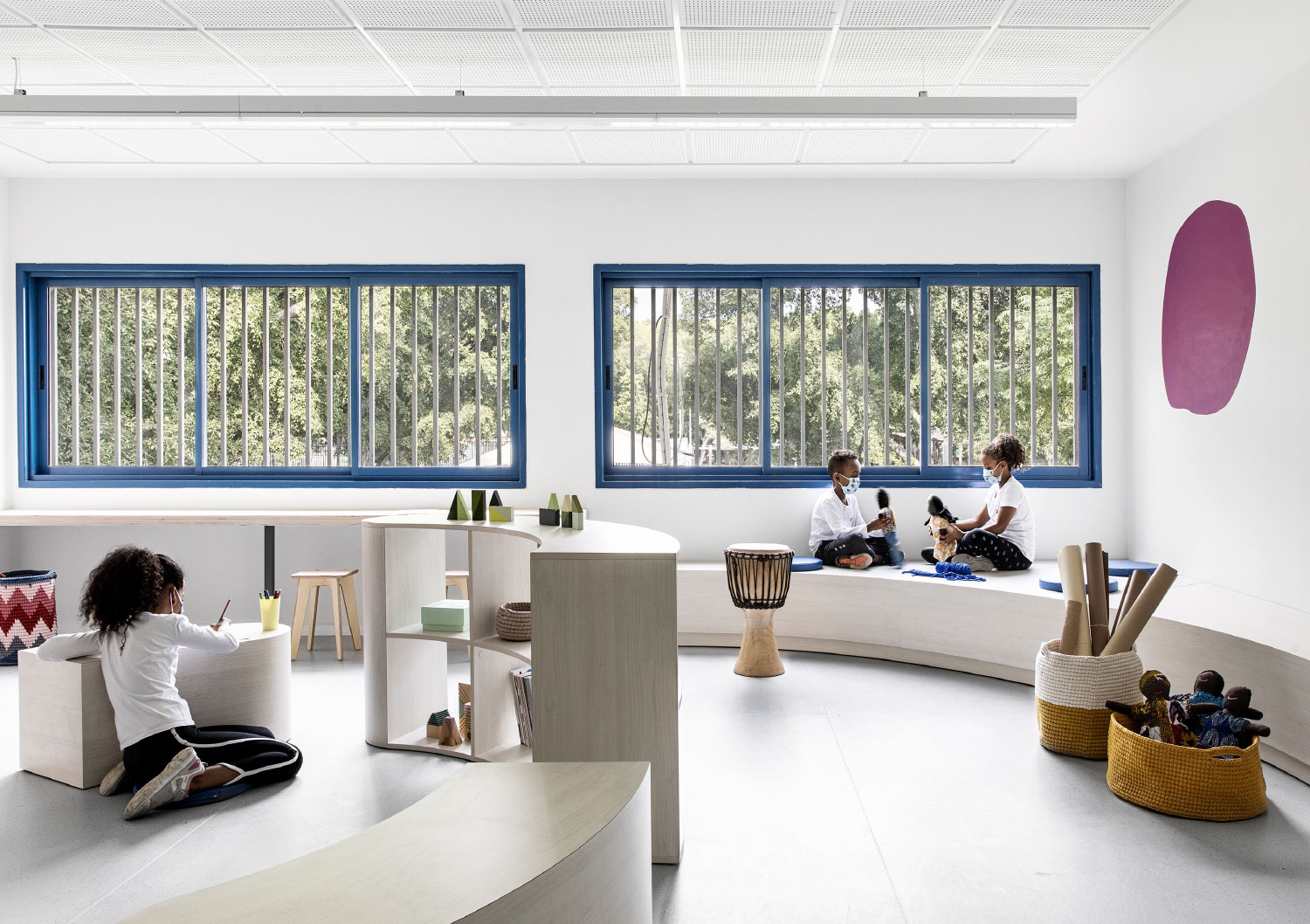
Meitar // Yarden Center for Emotional Support
The Meitar project, also called Yarden Center for Emotional Support, is a Tel Aviv Municipality pilot and a project unique to HaYarden School, attended by foreign and stateless children. The initiative to establish the center was born from the need to provide support to children who come from difficult and complex backgrounds and are in emotional distress, which is also reflected in behavior problems and social difficulties. All this without relying on the parents, since most of them do not have the financial possibility, the knowledge or emotional availability to provide them with care outside the walls of the school.
This project, like all the projects I am involved in, included discussions with the school’s pedagogical staff, and in this case, with therapy experts to ensure all needs were expressed in the design concept.
The design challenge was first and foremost to create an environment in which each child would find the right place for him, with the understanding that each child is different and needs slightly different conditions in order to flourish in their environment. Every child deserves a pleasant environment that radiates security, calmness, peace and allows personal growth and development. From the same understanding it was also clear that the center would offer different types of therapies, such as: art, dance, theater and more. Treatments will take place in individual and group work, depending on the type of treatment, and the center also needed to address this aspect.
The center was designed to encourage children to be creative and play and to allow maximum dynamism and flexibility for their needs. Soft corners and tables of different heights were placed in each of the spaces, allowing for a variety of seating arrangements. In planning the space, it was also important to put the children at the heart of things and to create neutral spaces that would give a platform to the children’s products. Hence, the furniture was built from natural materials and a limited color palette was chosen, and soft and simple lines were used in order to create a sense of flow in the space.
The project sharpened my belief that emotional support is a part of satisfying children’s basic needs, similar to food or shelter, and that only after these needs are met, can one begin to teach language, math and the rest of the educational format. I hope that more schools will adopt the model in light of the project’s success. The project was carried out in collaboration with Chen Steinberg Navon.
The project was carried out in collaboration with Zionut 2000 Association and Tel Aviv Foundation for Social Responsibility.
Photo: Itai Banit
